Voice Call
While modern business often involves many communication channels, sometimes nothing beats talking something through on a voice call. That’s why any business communications solution must offer high quality calls, varied call management options, and more.
Reach out today to learn how Vonage Business Communications (VBC) can meet your voice calling needs.
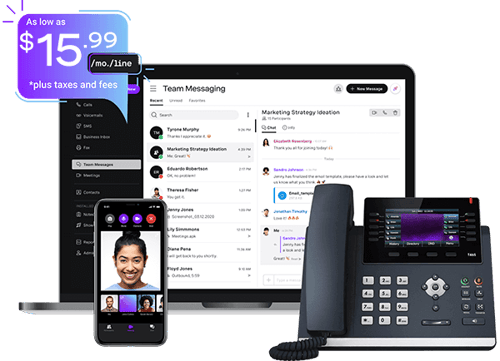
Thanks for reaching out!
We'll get back to you as soon as we can. In the meantime, feel free to explore more about Vonage and how we're making communications more flexible, intelligent, and personal so our customers can stay ahead.
What Is a Voice Call?
So, what is voice calling? Put simply, it’s a direct conversation held between two or more people over the phone or another telephony solution.
A voice call would typically be an audio-only conversation, as opposed to a video call which would also have live visuals. Voice calls and video calls are favored by many professionals over asynchronous communications. That’s because they make it easier gauge one another’s tone and are useful for more complex interactions.
More Than Just a Voice Call App
VBC gives you everything you’d expect from a voice calling app or hosted phone system plus a wide range of further features, too. Here are just a few of the functionalities and add-ons available for VBC users.
HD Voice For Phone Calls
The best voice call app needs to provide you with the best possible call quality. HD Voice on VBC delivers advanced call quality across mobile, web, desktop, and physical phone devices. Enable HD Voice on your account and colleagues and customers can have voice calls in high definition.
Click-to-Dial
Getting phone calls started has never been easier thanks to Click-to-Dial. The browser-based plugin means that with just one click you can start a voice call on any device. Just click a phone number and you’ll get a call on your Vonage phone or app. Answer it, and you’ll hear ringing as you’re put through to your desired recipient.
Caller ID Options
Caller ID is the number or name a recipient sees when you call them. With VBC, it’s easy to customize this ID to suit your needs. Display one number for all extensions, set each extension to show the number you prefer, or display a name along with the number, it’s really up to you.
Business Phone App
What’s better than a fully HD voice phone? The option to make a voice call from computers, mobile devices, tablets, or any other device that can access the internet. That’s possible with VBC thanks to the Mobile App, which works across both iOS and Android devices.
Call Logs
Need to see who called you, at what time, and for how long? VBC has built-in call logs that you can consult at any time. They’ll give you a clear overview of both incoming and outgoing calls. Call Logs let you access detailed records by extension or account.
Call Flip
For anyone looking to switch between devices while staying on the same call, Call Flip is the ideal solution. With a few clicks or taps, you can quickly flip a call from one device to the next, as and when you like, for full control and flexibility. The person you’re talking to likely won’t even notice.
Call Blocking
Eliminate unnecessary calls, both inbound and outbound, and boost your teams’ productivity. Call Blocking is included in all VBC plans and lets you create and customize rules for blocking calls. Block full or partial numbers, or choose to reject calls that show up as Restricted, Private, or Anonymous.
Business SMS and MMS
As much as we love voice calls, live conversations aren’t necessary for every situation. Business SMS and MMS with VBC means you can just as easily reach out via a text-based medium using your VBC number, so your conversation partners can reply at their leisure.
Virtual Receptionist
Also known as an auto attendant, Virtual Receptionist is the VBC feature that helps you cope when you get a high volume of inbound voice calls. By helping you manage your phone menu, outgoing messages, and call routing, the Virtual Receptionist ensures you can smoothly connect callers with the right people.
Voice Calling Still Matters in an Omnichannel World
Has the advent of omnichannel customer service — the seamless provision of support over diverse communication channels — spelled the end of the voice phone call? We say no — for a variety of reasons.
Voice calls still hold a valuable place in any strong omnichannel strategy, and a great VoIP phone service is necessary to implement an omnichannel approach.
Here are just a few reasons and scenarios that demonstrate why voice calling remains important in a world that’s increasingly focused on omnichannel customer service.

Catering to Customer Preferences
We’d be remiss not to mention the fact that some customers still simply prefer voice calls. They wouldn’t be as happy using other channels, such as live chat or video calls, to resolve their queries.
So, in order to continue to cater to their needs and wants (as any business needs to), you’ve simply got to offer voice calling options.
Some customers may also have differing needs that make voice calls the most attractive option. For example, a dyslexic customer might not wish to converse textually with your business. A voice call may, for them, be a much more palatable option.
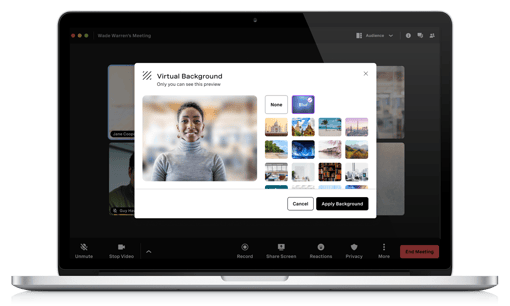
Instant Resolutions
Plenty of customers want to resolve an issue the moment it arises. They don’t have time to wait for someone to respond to an email, because they need to find out right away what they should do.
This could be true for any number of reasons. The issue in question might be time-sensitive, for example, or they might only have time on their lunch break to get in touch with your company.
Regardless of the customer’s reason, a quick resolution is sometimes more readily available when they’re able to make a voice call to your company.
This also lets customers assess the severity of their situation. Maybe they were panicking about something that can be fixed without much trouble, in which case it’s very useful for them to be able to talk through the problem with a knowledgeable customer service representative.
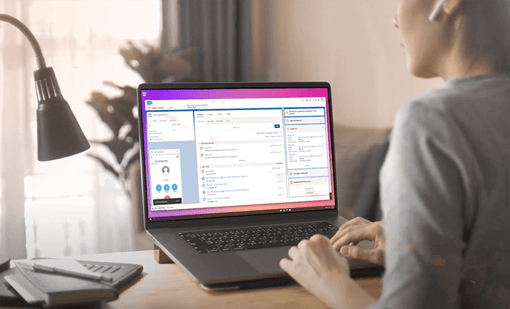
Omnichannel Vs. Multichannel
While they’re superficially similar, omnichannel and multichannel approaches are not the same.
An omnichannel approach is all about providing a seamless experience across every touchpoint, so customers get the same excellent service no matter how they reach out. Multichannel service, on the other hand, also includes more than one channel but the connection between and integration of those channels isn’t always there.
So, it’s difficult to argue that a company provides a true omnichannel experience if their support provision doesn’t include voice calls. They’re missing what’s arguably a key part of their strategy.
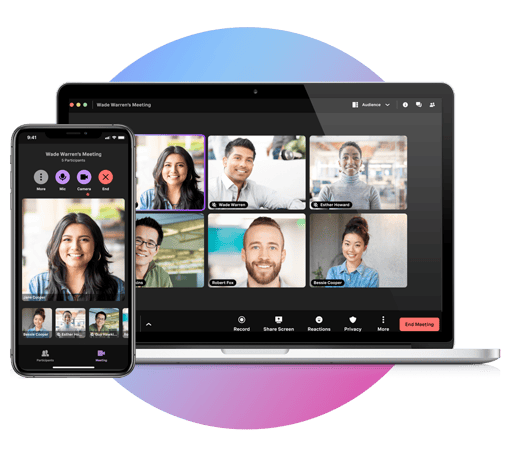
Great Accessibility
Since most modern voice communication solutions let you place calls using Voice over Internet Protocol or VoIP technology (more on this shortly), you can use them to reach virtually anyone, virtually anywhere. All they need is an internet connection, and they can communicate with your company without a problem.
This extends accessibility to people who live or work in spaces with poor cellular coverage. It also makes it easier to continue to reach out even when working remotely or spending time abroad. All you need is a wi-fi connection.
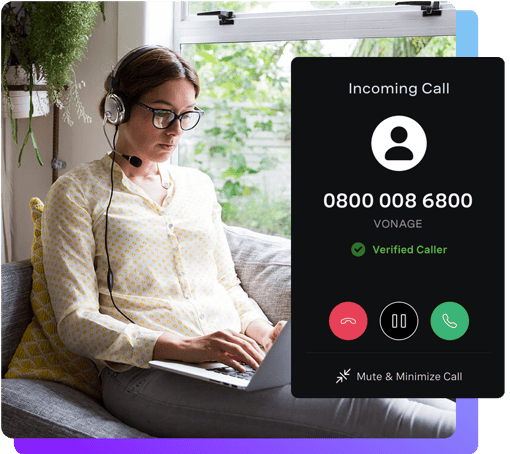
It’s Comfortable (And Familiar)
Sometimes, the deceptively simple answers are the most accurate ones.
If your customers are most comfortable with communicating via a particular channel, then that makes that channel crucial to your business. And, depending on demographic, location, the nature of your product, and other factors, you may find that voice calls are indeed that channel.
Thanks to their familiarity and immediacy, customers will often turn to voice calls first when they want to reach out to your company. So, you need to ensure that their calling experience is as good as it can be.
Voice over Internet Protocol (VoIP): How Online Voice Calling Works
VoIP (Voice over Internet Protocol) is the technology that allows calling using the internet as your medium for connection — rather than the traditional landline or cellular networks.
In simple terms, your voice gets translated into digital signals, which then travel to your conversation partner via the internet. The signals are then translated back into the audio they hear.
This process happens almost instantaneously. As a result, you can have VoIP-based conversations in real-time seamlessly.
Communication based on VoIP technology is, therefore, highly flexible. You can make VoIP calls on just about any device with an internet connection.
VBC: A Voice Call Service and A Whole Lot More
VBC is much more than just a voice calling service. It provides a wide range of features and add-ons to choose from so you can customize it into your ideal business communications platform.
Unifying your communication channels on one platform, VBC can meet your voice calling needs, streamline your wider business processes, and help boost productivity.
Get in touch with a Vonage expert today to learn more about how your business could benefit from VBC.
Voice Call FAQs
VoIP is, simply put, a better way to future-proof your business communications.
With VoIP, you can reach whoever you need, virtually anywhere, as long as they can access the internet.
VoIP-based systems are also more flexible. Mobile apps utilizing VoIP technology ensure that it’s easier to stay connected from wherever you may be.
Traditional landlines, on the other hand, are on-site solutions. They can’t come with you when you go on holiday or if you decide to work in a coffee shop. If someone calls you while you aren’t near your landline, you’ll likely miss them. Plus, many countries are starting to phase out their traditional landline networks.
A phone system is a solution that lets you make and take calls. It might be a virtual tool or it could be hardware-based.
Unified Communications as a Service (UCaaS), on the other hand, is always going to come in the form of software. As its name implies, it’s more than a phone solution, because it incorporates all your communication channels into a single tool.
Most UCaaS solutions will come with built-in voice calls, SMS and other messaging functionalities, and further features.
The short answer is that any device that can access the internet can work for making VoIP calls.
For a longer answer, let’s look at some examples.
Modern mobile devices practically all let you make VoIP calls. That includes Android phones, iPhones, Google Phones, and many others. Even older flip phones can work, as long as they can be used to connect to the internet.
Just about any laptop or desktop computer can do the job as well. You’ll sometimes have to download an app, though some providers let you place VoIP calls using the browser version of their software.
Tablets work as well, as these practically all come with the capacity for accessing the internet.
What you may not realize is that many gaming consoles will let you place VoIP calls, as well. You’ll need some way to speak into the device and to hear the responses from your conversation partner, but devices like PlayStation or Xbox consoles have these features.
Yes, and generally very easily so.
Unlike traditional cellular solutions, internet telephony doesn’t discriminate as much based on geographical location. That means you can just as easily call your colleague downstairs as a friend on the other side of the world, time zone differences allowing.
You also typically don’t need to pay as much extra to make international VoIP calls. This can make VoIP a more cost-effective solution than its traditional counterpart.
Broadly speaking, VoIP-based systems deliver call quality that’s at least as good as that provided by traditional setups.
The quality of VoIP-based calls is inherently linked to the strength of your connection to the internet — that is, unless you’ve found a provider that can secure excellent quality calls even at lower bandwidths.